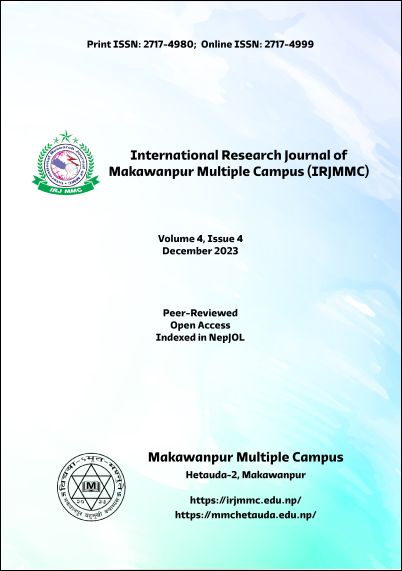The Victim of Derogatory Treatment in the Second War: An Analysis of Billy Pilgrim in Kurt Vonnegut’s novel ‘Slaughterhouse-Five or The Children’s Crusade.’
DOI:
https://doi.org/10.3126/irjmmc.v4i4.61156Keywords:
Billy Pilgrim, Brutality, Experiences, Second World War, Slaughterhouse-fiveAbstract
The novel, ‘Slaughterhouse-Five or The Children’s Crusade’ by Kurt Vonnegut, is deemed as an anti-war book, primarily concerned with avoidance of the war and deliberate desire to escape from the recollection of the horrible devastation of the world war. This research aims to focus on Billy Pilgrim’s bitter experiences of the brutality of war and horrific experiences imposed upon him by his fellow and the German soldiers in the Second World War. The purpose of this study is to identify the abuse of the power on victimizing the submissive character. The research is based on the qualitative research to explore the contexts and dialogues revolving around the major characters relevant to their exploitative and derogatory natures dictated on Billy Pilgrimage. The research gathers sources of information primarily from this novel and secondarily from the concerned journals, theses and books. This research enables the learners to seek out series of predicaments, challenges and hardships during the world war notably relevant to Billy’s derogated experiences and instill feeling of the anti-war.
Downloads
Downloads
Published
How to Cite
Issue
Section
License
Copyright (c) 2023 Sumargi Humagain, Shreedhar Gautam

This work is licensed under a Creative Commons Attribution-NonCommercial 4.0 International License.

